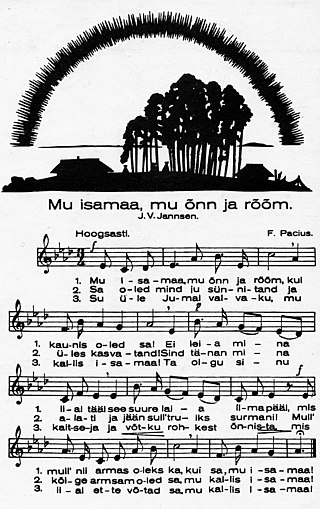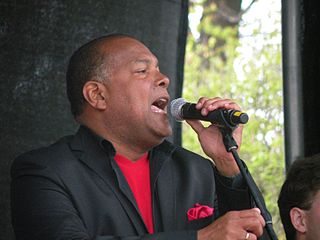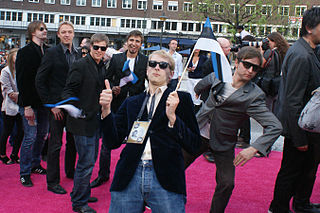
Tallinn is the capital and most populous city of Estonia. Situated on a bay in north Estonia, on the shore of the Gulf of Finland of the Baltic Sea, Tallinn has a population of about 461,000 and administratively lies in the Harju maakond (county). Tallinn is the main governmental, financial, industrial, and cultural centre of Estonia. It is located 187 km (116 mi) northwest of the country's second largest city, Tartu; however, only 80 km (50 mi) south of Helsinki, Finland, also 320 km (200 mi) west of Saint Petersburg, Russia, 300 km (190 mi) north of Riga, Latvia, and 380 km (240 mi) east of Stockholm, Sweden. From the 13th century until the first half of the 20th century, Tallinn was known in most of the world by variants of its other historical name Reval.

The national flag of Estonia is a tricolour featuring three equal horizontal bands of blue (top), black (middle), and white (bottom). The flag is called sinimustvalge in Estonian.

"Mu isamaa, mu õnn ja rõõm" is the national anthem of Estonia. It was adopted as the national anthem in 1920.

Tanel Padar is an Estonian singer and songwriter. He is best known internationally for winning the Eurovision Song Contest 2001. Padar became famous by winning the Kaks takti ette, a biennial televised competition for young Estonian singers, in 1999.
The recorded history of music in Estonia dates back as far as the 12th century.
The Estonian rock music scene saw its beginnings in the mid-1960s during Khrushchev Thaw in the Soviet Union and the rise of British bands all over the world. The first Estonian rock-groups were primarily high school bands playing cover versions of the current UK Top 10. Despite the lack of official support from Soviet authorities some of these groups, posing as dance music bands in various clubs, gained a large underground following. Some groups managed to make proper studio recordings and appear a couple of times on television.

Vanilla Ninja is an Estonian all-female rock band which enjoyed chart success in a number of countries across Europe, especially in Estonia, Germany and Austria.

Dave Benton is an Aruban-born Estonian pop musician. He is one of the winners of the Eurovision Song Contest 2001. At the age of 50 years and 101 days at the time of his victory, Benton is the oldest singer ever to win Eurovision.
Estonia participated in the Eurovision Song Contest 2003 with the song "Eighties Coming Back" written by Vaiko Eplik. The song was performed by the band Ruffus. The Estonian broadcaster Eesti Televisioon (ETV) organised the national final Eurolaul 2003 in order to select the Estonian entry for the 2003 contest in Riga, Latvia. Ten songs competed in the national final and "Eighties Coming Back" performed by Claire's Birthday was selected as the winner by an international jury panel. The band was later renamed as Ruffus for the Eurovision Song Contest.
Ruffus was an indie rock band from Estonia that was originally known as Claire's Birthday. They represented their country in the Eurovision Song Contest 2003.

The Estonian Defence League is a voluntary national defence organization of the Republic of Estonia, under management of the Ministry of Defence. Its aim is to guarantee the preservation of the independence and sovereignty of the state, the integrity of its land area and its constitutional order.
Urmas Alender was an Estonian singer and musician, the vocalist of popular Estonian bands Ruja and Propeller.

Urban Symphony is an Estonian music group. It represented Estonia in the Eurovision Song Contest 2009 with the song "Rändajad", finishing in 6th place with 129 points. In doing this, they achieved Estonia's best placement since 2002.

Malcolm Lincoln was an Estonian band that formed in October 2009. The members are Robin Juhkental, Jakob Juhkam, Siim Raidma, Ott Adamson, Johan Alexander Petti and Hans Kurvits. The original lineup consisted of Robin Juhkental (vocals/electronics) and Madis Kubu (bass). Juhkental has described their style as "electronic pop with a slightly quirky undertone". The band's name originates from the game show Who Wants to Be a Millionaire?, where a woman incorrectly answered "Malcolm Lincoln" to a question involving the first name of Abraham Lincoln, the 16th President of the United States. Malcolm Lincoln, together with a group of backing vocalists called Manpower 4, won the competition Eesti Laul 2010 with the song "Siren" and represented Estonia in the Eurovision Song Contest 2010. The band released their debut album Loaded With Zoul in May 2010.

Estonia, officially the Republic of Estonia, is a country by the Baltic Sea in Northern Europe. It is bordered to the north by the Gulf of Finland across from Finland, to the west by the sea across from Sweden, to the south by Latvia, and to the east by Lake Peipus and Russia. The territory of Estonia consists of the mainland, the larger islands of Saaremaa and Hiiumaa, and over 2,300 other islands and islets on the east coast of the Baltic Sea, covering a total area of 45,335 square kilometres (17,504 sq mi). Tallinn, the capital city, and Tartu are the two largest urban areas. The Estonian language is the indigenous and official language. It is the first language of the majority of the population of 1.4 million.

Tatjana Mihhailova-Saar, better known as Tanja or Tanja Mihhailova is a Russian-Estonian pop singer and actress. She was born in Kaliningrad, Russia, and has lived in Estonia from a very young age. Tanja has been a member of several bands in her professional career and has performed in several stage musicals. She represented Estonia in the Eurovision Song Contest 2014 with the song "Amazing" and finished in 12th place in the semi-final, failing to qualify.
This article lists events that occurred during 1995 in Estonia.
Estonian punk is a punk movement in Estonia, part of the international punk subculture.










